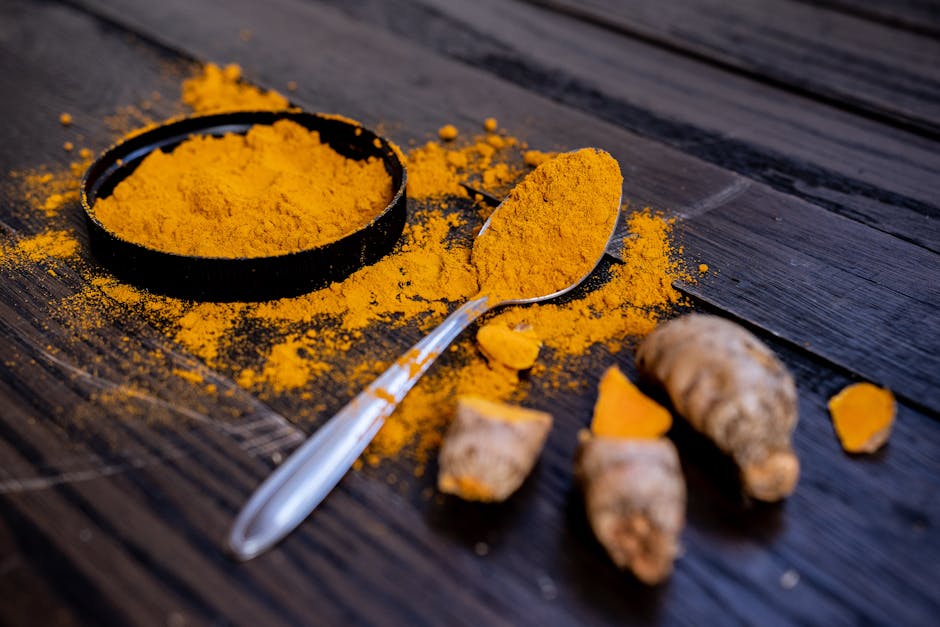Kenyan Turmeric Tea: The Golden Brew Boosting Global Immunity in 2025
Kenyan Turmeric Tea: A Global Immunity Sensation in 2025
As we navigate the ever-evolving landscape of health and wellness, one beverage is steadily gaining recognition for its potential to bolster immunity and promote overall well-being: Kenyan turmeric tea. In 2025, this golden brew is poised to become a global sensation, thanks to its unique blend of flavor, tradition, and scientifically-backed health benefits. But what makes Kenyan turmeric tea so special, and why is it capturing the attention of health enthusiasts worldwide?
Turmeric, a vibrant spice derived from the Curcuma longa plant, has been used for centuries in traditional medicine, particularly in Ayurveda. Its active compound, curcumin, is renowned for its potent anti-inflammatory and antioxidant properties. When combined with the rich, earthy flavors of Kenyan tea, turmeric creates a synergistic blend that offers a multitude of health advantages. This article delves into the rising popularity of Kenyan turmeric tea, exploring its benefits, preparation methods, and its potential impact on global immunity in 2025.
From ancient traditions to modern scientific research, the story of Kenyan turmeric tea is one of discovery, innovation, and a growing appreciation for the power of natural remedies. Join us as we explore the golden brew that is set to redefine the future of health and wellness.

The Health Benefits of Kenyan Turmeric Tea
The health benefits of Kenyan turmeric tea are primarily attributed to curcumin, the active compound in turmeric. Curcumin is a powerful antioxidant and anti-inflammatory agent, offering a wide range of potential health advantages. Here are some key benefits associated with consuming Kenyan turmeric tea:
- Boosts Immunity: Curcumin helps to strengthen the immune system by modulating immune cells and enhancing their ability to fight off infections.
- Reduces Inflammation: Chronic inflammation is linked to various health problems, including heart disease, arthritis, and cancer. Curcumin's anti-inflammatory properties can help to reduce inflammation throughout the body.
- Supports Joint Health: The anti-inflammatory effects of curcumin can alleviate joint pain and stiffness, making it a beneficial beverage for individuals with arthritis or other joint conditions.
- Improves Brain Function: Studies suggest that curcumin may improve cognitive function and protect against age-related cognitive decline. It may also enhance memory and attention.
- Promotes Heart Health: Curcumin can help to improve heart health by reducing cholesterol levels, lowering blood pressure, and preventing the formation of blood clots.
- Aids Digestion: Turmeric has been traditionally used to aid digestion and relieve digestive discomfort. It can help to reduce bloating, gas, and indigestion.
In addition to curcumin, Kenyan tea itself offers its own set of health benefits. Kenyan tea is rich in antioxidants, which can help to protect against cell damage and reduce the risk of chronic diseases. The combination of turmeric and Kenyan tea creates a powerful synergy that amplifies the health benefits of both ingredients.

Sourcing and Sustainability: The Kenyan Advantage
Kenya's unique climate and fertile soil make it an ideal location for growing high-quality tea and turmeric. Kenyan tea is renowned for its robust flavor and vibrant color, while Kenyan turmeric is prized for its high curcumin content. The combination of these two ingredients creates a tea that is both delicious and nutritious.
Furthermore, many Kenyan tea and turmeric farmers are committed to sustainable agricultural practices. They prioritize environmental stewardship, using organic farming methods and minimizing their impact on the ecosystem. By supporting Kenyan turmeric tea, consumers can contribute to sustainable agriculture and help to protect the environment.
Several organizations and initiatives are working to promote sustainable tea and turmeric farming in Kenya. These efforts include providing farmers with training and resources, promoting fair trade practices, and supporting community development projects. By choosing Kenyan turmeric tea, consumers can support these initiatives and help to create a more sustainable and equitable food system.

How to Brew the Perfect Cup of Kenyan Turmeric Tea
Brewing the perfect cup of Kenyan turmeric tea is a simple process that can be customized to suit individual preferences. Here's a basic recipe to get you started:
- Gather Your Ingredients: You'll need Kenyan tea leaves (black or green), turmeric powder or fresh turmeric root, water, and optional additions like ginger, honey, lemon, or milk.
- Prepare the Turmeric: If using fresh turmeric root, peel and grate a small piece (about 1-2 inches). If using turmeric powder, measure out about 1/2 teaspoon.
- Brew the Tea: Heat water to a boil and steep the Kenyan tea leaves for 3-5 minutes, depending on your desired strength.
- Add the Turmeric: Stir in the turmeric powder or grated turmeric root into the brewed tea.
- Add Optional Ingredients: Enhance the flavor and health benefits of your tea by adding grated ginger, a squeeze of lemon juice, a drizzle of honey, or a splash of milk.
- Strain and Serve: Strain the tea to remove any tea leaves or turmeric particles. Serve hot and enjoy!
Experiment with different variations to find your perfect cup of Kenyan turmeric tea. You can adjust the amount of turmeric, tea leaves, and optional ingredients to suit your taste preferences. You can also try adding other spices like cinnamon, cardamom, or cloves for a more complex flavor profile.

Kenyan Turmeric Tea in 2025: A Global Trend
In 2025, Kenyan turmeric tea is expected to become a global trend, driven by increasing awareness of its health benefits and growing demand for natural and sustainable products. Several factors are contributing to this rising popularity:
- Growing Health Consciousness: Consumers are becoming increasingly health-conscious and are seeking out natural remedies to support their well-being.
- Rising Popularity of Turmeric: Turmeric has gained widespread recognition for its health benefits, and consumers are looking for convenient ways to incorporate it into their diets.
- Demand for Sustainable Products: Consumers are increasingly concerned about the environmental and social impact of their purchasing decisions and are seeking out sustainable and ethically sourced products.
- Kenyan Tea's Reputation: Kenyan tea is renowned for its quality and flavor, making it a desirable ingredient for tea blends.
As a result of these factors, Kenyan turmeric tea is expected to become increasingly available in supermarkets, health food stores, and online retailers worldwide. It is also likely to be featured on the menus of cafes and restaurants, offering consumers a convenient and delicious way to enjoy its health benefits.

Where to Find Authentic Kenyan Turmeric Tea
With the growing popularity of Kenyan turmeric tea, it's important to ensure you're purchasing authentic and high-quality products. Here are some tips for finding genuine Kenyan turmeric tea:
- Look for reputable brands: Research brands that are known for sourcing their tea and turmeric directly from Kenya and for using sustainable farming practices.
- Check the ingredients list: Ensure that the tea contains genuine Kenyan tea leaves and turmeric. Avoid products with artificial flavors or additives.
- Read customer reviews: See what other customers have to say about the product's quality and flavor.
- Purchase from trusted retailers: Buy from reputable supermarkets, health food stores, or online retailers that specialize in tea and spices.
- Consider Fair Trade options: Look for Fair Trade certified Kenyan turmeric tea to support fair wages and working conditions for farmers.
By following these tips, you can ensure that you're purchasing authentic and high-quality Kenyan turmeric tea that will provide you with the full range of health benefits and a delicious flavor experience. As Kenyan turmeric tea continues to gain popularity in 2025, it's set to become a staple in households around the world, offering a natural and delicious way to boost immunity and promote overall well-being.

So, raise a cup of Kenyan turmeric tea to a healthier, brighter future for us all!
-Hot Water
Comments
Post a Comment